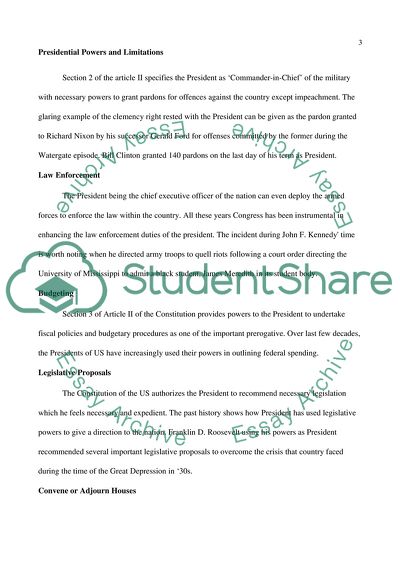Cite this document
(Presidential Powers and Limitations Literature review Example | Topics and Well Written Essays - 1750 words, n.d.)
Presidential Powers and Limitations Literature review Example | Topics and Well Written Essays - 1750 words. https://studentshare.org/politics/1769921-presidental-powers-and-limitations
Presidential Powers and Limitations Literature review Example | Topics and Well Written Essays - 1750 words. https://studentshare.org/politics/1769921-presidental-powers-and-limitations
(Presidential Powers and Limitations Literature Review Example | Topics and Well Written Essays - 1750 Words)
Presidential Powers and Limitations Literature Review Example | Topics and Well Written Essays - 1750 Words. https://studentshare.org/politics/1769921-presidental-powers-and-limitations.
Presidential Powers and Limitations Literature Review Example | Topics and Well Written Essays - 1750 Words. https://studentshare.org/politics/1769921-presidental-powers-and-limitations.
“Presidential Powers and Limitations Literature Review Example | Topics and Well Written Essays - 1750 Words”. https://studentshare.org/politics/1769921-presidental-powers-and-limitations.


